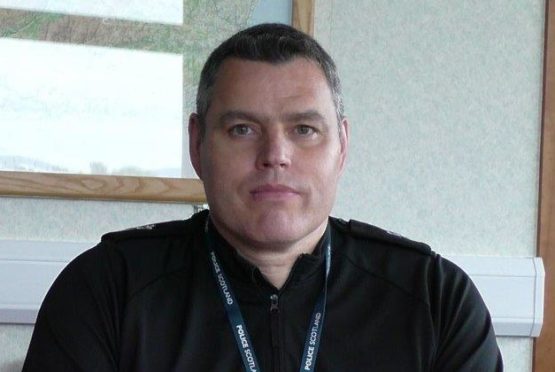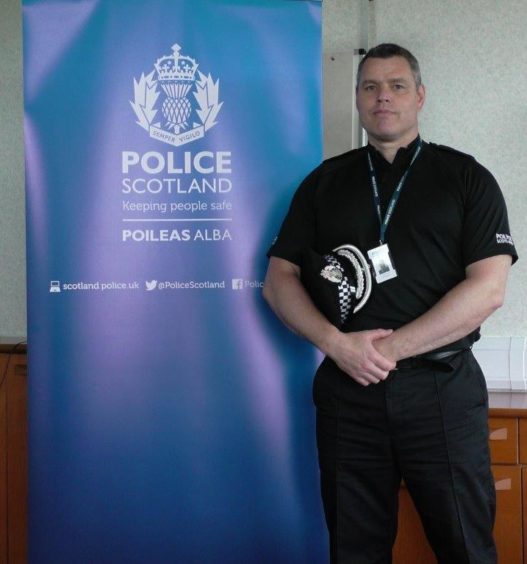Crime has fallen, detection rates have risen – but a shocking rise in domestic violence in the Highlands and Islands during the Covid pandemic has left the north’s police chief deeply dismayed.
There has been an obvious decline in housebreakings – as more people are having to stay at home during the lockdowns.
Shoplifting too has also taken a sharp drop, as fewer shops have been open.
Other crimes have fallen during the last Covid-ridden year, including serious assaults and sexual offences.
But Divisional Commander Chief Superintendent Conrad Trickett has revealed the pandemic has also brought about “hidden harms”.
He said: “There has been a 7% rise in domestic abuse cases – reinforcing the message of the hidden harms of Covid.”
There has also been a rise in child protection incidents, as well as fraud – particularly online.
“We have been told to stay at home, but home is not a safe place for everyone.”
The police chief spoke to the Press and Journal as figures for the April to December period were released by Police Scotland.
The figures show the detection rate had increase by almost five percent, with the division recording one of the highest drug detection rates in Scotland.
Another worrying trend was the number of drink and drug driving crimes, up to 558 compared to 384 the previous year.
Part of the increase is down to the introduction of mouth swipes which can detect traces of drugs.
A significant rise in frauds also continues to be a concern both nationally and locally – in the Highlands and Islands, 402 incidents were recorded compared to 244 the previous year, with a notable increase every quarter period.
Chief Superintendent Trickett added: “It is absolutely crucial that our communities have confidence in the police, particularly at this challenging time.
“My team and I continue to be immensely grateful to the public for the high levels of co-operation and support we are receiving and I would ask that you continue letting us know your concerns.”
“For example, information received from the Caithness community provided us with the vital intelligence required to remove harmful substances from our streets and charge numerous offenders, ultimately making a positive impact in the area. This activity continues.
“The figures contained within today’s report are to be welcomed, however I must stress once again that they have been recorded during an unprecedented time and it could be many years before we understand the full impact of coronavirus on policing and crime generally.
“Let me provide every reassurance though that Highlands and Islands Division remains committed to supporting the people we serve, listening to you and acting on your concerns.”
In the north-east, the pandemic continues to have a significant impact upon criminality and the work of the police.
The total number of crimes recorded during between April and December 2020 decreased by several hundred incidents in comparison to the same period last year, while the detection rate increased by more than 3%.
Divisional Commander Chief Superintendent George Macdonald said: “The public health crisis continues to influence the needs of our communities, and this has resulted in a change in demand on policing.
“While crimes of violence, crimes of dishonesty and offences committed on our roads all decreased during this quarter three period, there has continued to be a significant increase in areas such as fraud and online offences.
“These are increasingly complex and resource-intensive investigations and we remain committed to protect people from harm in public, private and virtual spaces.
“It could be many years before we fully understand the impact of coronavirus on crime and the demand on policing generally in Scotland.
“As much as I welcome a decrease in the types of crime that can have a significant impact on our communities, it must be appreciated that these figures have been recorded during an unprecedented time.”

